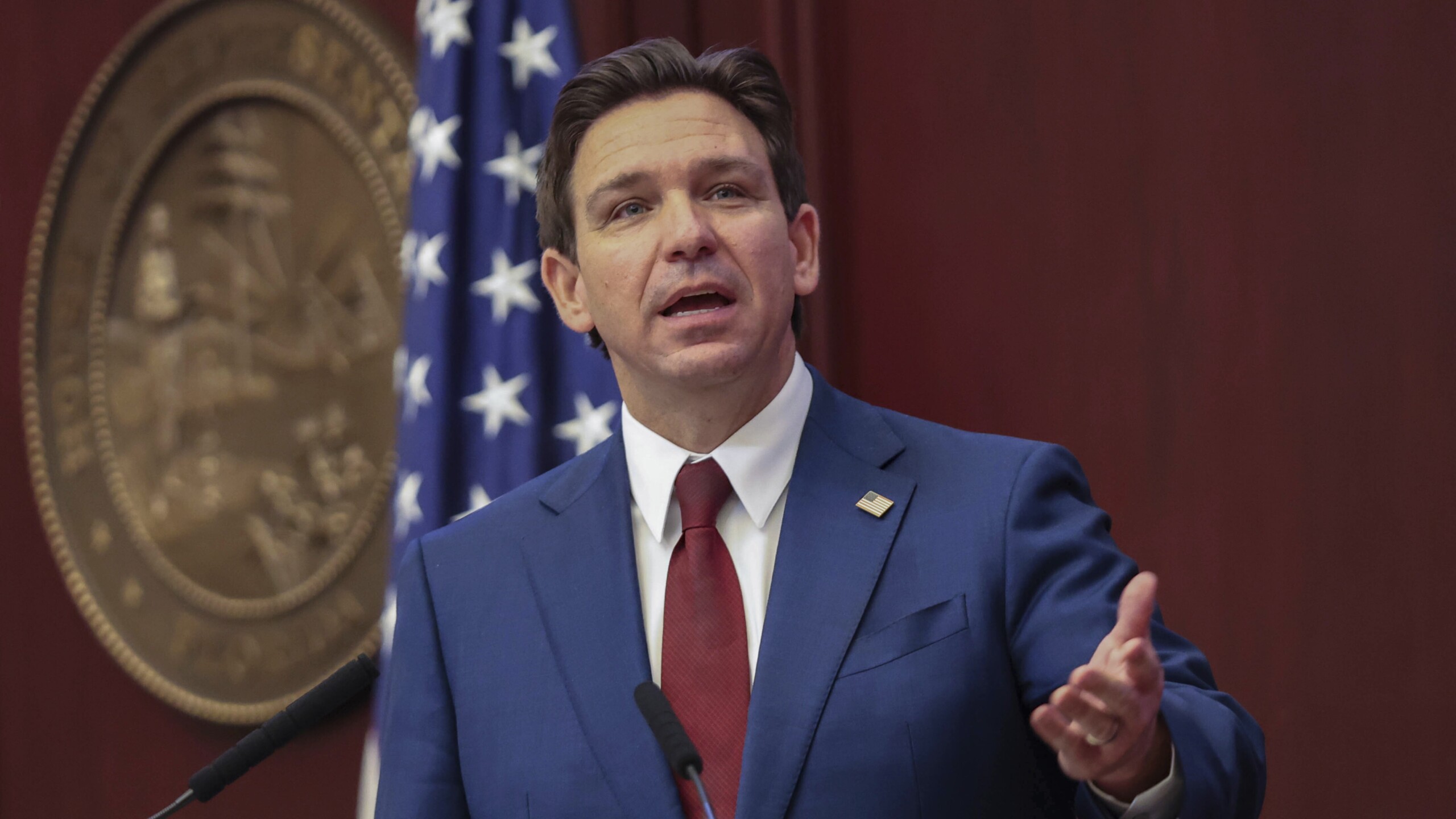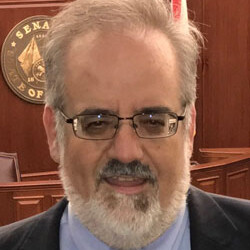With his presidential campaign in the background, Gov. Ron DeSantis used his annual State of the State address Tuesday to tout Florida’s accomplishments — while offering few new details of priorities for the 2024 legislative session.
DeSantis’ speech in the state House chamber formally launched the 60-day session and came six days before the crucial Iowa caucuses in the fight for the Republican presidential nomination.
While he did not directly discuss the presidential campaign, DeSantis repeatedly tried to contrast Florida with other states and the federal government on a variety of issues, such as public safety, financial management and immigration enforcement.
“Together, we will keep Florida free and provide hope for a revival of the American spirit throughout these United States,” DeSantis said as he closed the 35-minute speech.
Democrats blasted DeSantis, saying he has focused on the presidential campaign instead of the state’s needs. House Minority Leader Fentrice Driskell, D-Tampa, called him the “absentee governor.”
“I was surprised that there was no real vision for Florida. I came away feeling, OK, so where do you want to take us next?” Driskell told reporters. “I felt like he said, ‘We’ve done all these great things, let’s keep doing these same great things.’ There was nothing fresh. That was surprising to me. Because it was an opportunity for him to make his case to the people of Florida as well, and I think he missed it.”
The State of the State address came on what is always a ceremonial day in the Capitol, with flowers festooning desks in the House and Senate chambers. But Tuesday’s events were shadowed by violent storms and tornadoes in North Florida that led to all state government buildings in Tallahassee — except the Capitol — being closed.
Shortly before he began the speech, DeSantis issued an executive order that included declaring a state of emergency in 49 counties.
With members of the House and Senate gathered in a joint session, DeSantis touched on some earlier-announced proposals for the session, such as offering $1.1 billion in tax breaks and providing additional money to boost teacher pay.
Also, he said Florida will welcome Jewish students with “open arms” if they face anti-Semitism on campuses elsewhere in the country. That would include waiving minimum credit-hour requirements for students who transfer and waiving application deadlines, he said.
But much of the speech focused on what DeSantis described as accomplishments.
“My message is simple: Stay the course,” he said.
At least some of what he touted has been highly controversial, such as restricting abortion rights, revamping elections laws and dramatically expanding school vouchers. He also pointed to issues that are popular with the Republican base, saying the state had protected Floridians against “COVID authoritarianism” and “kneecapped ESG,” or environmental, social and governance factors considered by businesses and investors.
But Democrats had a different take, accusing DeSantis and other Republicans of focusing on issues such as restricting abortion rights while not addressing issues such as high property insurance costs.
“We just heard the governor speak about Florida’s triumphs,” Senate Minority Leader Lauren Book, D-Davie, said. “Yet underneath carefully curated talking points, a much darker reality is clear: The very essence of what has made our state great for decades is under continued threat due to an increasingly out-of-touch and extreme agenda championed by the Republican Party of Florida and a governor who is more preoccupied with running for president than solving problems in our state.”
News Service staff writer Ryan Dailey contributed to this report.
Lead image: Florida Gov. Ron DeSantis gives his State of the State address during a joint session of the Senate and House of Representatives in Tallahassee on Tuesday, Jan. 9, 2024. | Gary McCullough, AP







